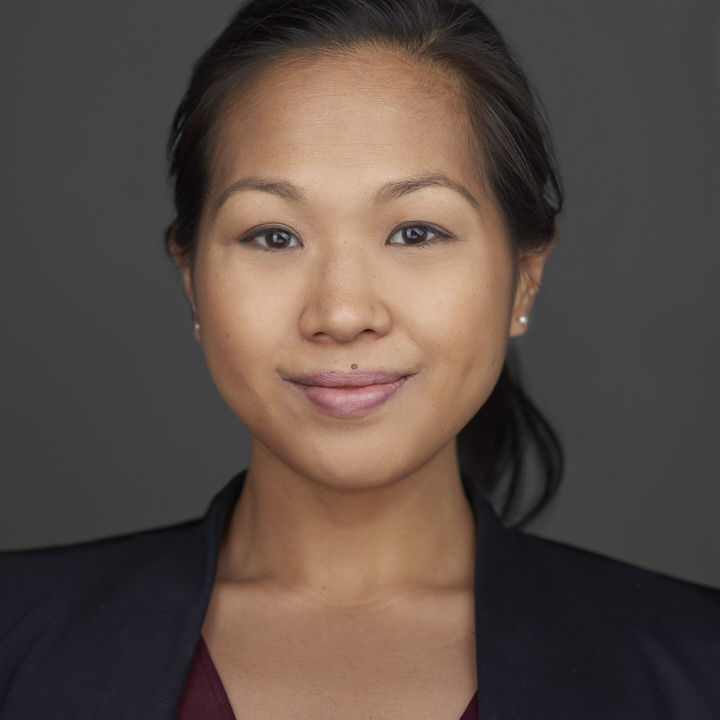As students across the country return to school this month, the LISC Charter School Financing team reflects on the challenges facing its portfolio schools as they work to create authentically safe, empowering and anti-racist learning communities. It’s a journey that parallels our own at LISC as we enact our commitment to racial equity and justice, inclusivity and transparency.
For the second year in a row, Back to School season is anything but normal. Many students will be returning to in-person learning for the first time in nearly seventeen months. In preparation, school leaders and teachers across the country have had to juggle competing priorities and conflicting ideologies. They must keep students safe and healthy, while also contending with new variants of COVID and in some cases, parent and local government opposition to mask mandates and culturally responsive curricula.
Last summer, schools and organizations across the country, including ours, committed to being anti-racist. This summer, amidst fears and misunderstandings of Critical Race Theory and its goals, some parents are pushing back against any discussions of racism and white supremacy in the classroom. The schools in our portfolio have treated each of these challenges as an opportunity to stay the already established course of centering students, truth, and innovation. The LISC Charter School Financing team has been grappling with many of the same questions as our schools. We are on parallel journeys as we look to fulfill our commitment to change.

Starting with Emotional and Mental Health
The abrupt switch to virtual learning left some students feeling isolated, unable to socialize, and stressed by current events. According to a McKinsey study, more than 35 percent of parents reported feeling very or extremely concerned about their child’s mental health. Despite increased concerns, the same report found that children were undergoing fewer mental health assessments.
In the first few weeks of school, the school leaders and teachers in our portfolio prioritized the creation of a culture of safety and inclusivity. In an effort to foster empathy and allow the members of their school communities to share their emotions, elementary schools across the KIPP New Jersey network will now start the day with a morning check-in where teachers can connect and welcome students and share words of encouragement. At Marion P. Thomas, a high school in New Jersey, regular town halls are helping nurture a culture of open communication between staff and students. The staff are depending on a network of counselors, social workers, a child study team, and advisory teachers ensure that their emotional and social connections to students remain strong.
Affirming Student Voice
As the schools in our portfolio create more opportunities and spaces where students can express themselves, they are also addressing other systemic changes. One need that students have expressed is the desire to have their schools rethink safety and the roles of school resource officers, or security personnel, on campus. Across the Oakland school district, Culture and Climate Ambassadors are replacing school resource officers. The ambassadors do not punish but rather focus on creating a positive culture and climate within the building.
In Providence, student members of the Providence Alliance for Student Safety Coalition, the Alliance of Rhode Island Southeast Asians for Education and the Providence Youth Student Movement continue to build on work that began three years ago: according to their plan for school safety, these student activists advocate for Providence schools to add more “culturally responsive professionals who will work full time in the schools to support the mental health, emotional well-being and overall success of PPSD students, 90+ percent of whom identify as Black, Indigenous, and students of color.”
Schools and districts are responding positively to the demands of their students, as in the case of Newark, New Jersey where students at North Star Academy Washington Park advocated for a Wellness Council and returned in the fall to find the school had honored their desires. This year, the school will offer a new class on mental health as well.
“One of the most important things we do at North Star is ensure our students know that their voice matters. That’s why we are always making sure to listen. Quite often, we are inspired by our students’ ability to develop ideas and programs that help their peers achieve their goals.” says Barbara Martinez, a spokeswoman for North Star Academy.
Promoting Flexible Learning Environments
Part of centering student’s mental health and positive racial identity development demands that we re-examine how we both support and measure student achievement. The pandemic has significantly slowed the rate of learning in traditional subjects throughout our student populations. The differential in the rate of learning is further exacerbated along racial lines. Students from kindergarten through 12th grade ended the year an average of five months behind in math and four months behind in reading. According to McKinsey, “students attending schools with a majority of Black students ended the school year six months behind in both math and reading, while students in schools with a majority of White students ended up just four months behind in math and three months behind in reading.”
 While some schools are returning to a fully in-person school day, others are retaining a virtual option. For many students, the widespread availability of virtual learning has been a blessing, providing an ideal learning environment, especially for some with physical disabilities and those who may be neuro-diverse, or have other special needs. Desert Sage Academy in Santa Fe, NM, for instance, continues to provide remote learning options for students, offering both flexibility and rigor. At Arizona Autism Charter School in Phoenix, some parents have asked to remain remote, as it believe it has benefitted their children. Our portfolio schools have centered students and diversified instructional channels as a result.
While some schools are returning to a fully in-person school day, others are retaining a virtual option. For many students, the widespread availability of virtual learning has been a blessing, providing an ideal learning environment, especially for some with physical disabilities and those who may be neuro-diverse, or have other special needs. Desert Sage Academy in Santa Fe, NM, for instance, continues to provide remote learning options for students, offering both flexibility and rigor. At Arizona Autism Charter School in Phoenix, some parents have asked to remain remote, as it believe it has benefitted their children. Our portfolio schools have centered students and diversified instructional channels as a result.
Our Own Journey at LISC
Our schools are not the only ones that on a journey to do better during extremely challenging times. Last summer, the LISC Charter School Financing team committed to continue educating ourselves and taking the internal actions to ensure that we were not upholding racist systems in our policies and practices. This is a recommitment to work we were already doing to center racial equity in our lending. As Akeem Brown, leader of Essence Prep in San Antonio, TX, shared in a LISC profile, “Now, more than ever, is the time to develop the models, protocols and people that are required to create a truly liberating education.”
In order to expand our learning, we have joined together with our colleagues across the lending department for ongoing racial equity training that will help us develop the shared knowledge and language we need to nurture an internal culture of transparency and accountability. A culture that will allow us to have tough conversations, prioritize wellness, and affirm the voices and experiences of all our staff. This is a foundation that is critical to our future ability to both ideate and successfully implement policy changes.
In addition to this training, the Charter School Financing team has a book club that has been a safe space to explore and discuss the intersection of the lending work we do, race, and related themes in education. In partnership with our lending team, we have begun to examine our loan process from origination to construction in order to identify opportunities to elevate our standard practices and center racial equity.
Beyond LISC, we are proud members of the Racial Equity Collaborative on Education – where we have partnered with CDFIs across the sector to develop a racial equity matrix – intended to improve our ability to understand the positive impact our schools are having within their communities and outside of state test scores, which we know are rife with biases. We are in the process of piloting that matrix, sharing our learnings, and standardizing how it will be used in our lending going forward.

After working with several racial justice consultants and investigating the disciplinary and pedagogical frameworks available to schools, the Charter School Financing team has determined Restorative Justice and Culturally Relevant Pedagogy (CRP) to be best practices. Studies have shown that when implemented correctly, Restorative Justice both limits the time students spend outside classrooms and fosters a safer learning environment. Culturally relevant teaching builds on the backgrounds, knowledge, and experiences of the students to inform the teacher’s lessons and methodology. Though these practices are still relatively new for schools, a San Diego State University study found that students who participated in culturally responsive education programs "feel a sense of belonging as well as a sense of affirmation for their own and others’ cultures."
We have been collecting data and evaluating our schools’ commitment to the tenets of Restorative Justice and CRP as part of our lending due diligence process. Next, we hope to layer in more criteria from the racial equity matrix. Our team is committed to evolving the ways we evaluate and invest in schools that are working with Black and Brown students. “The classroom is where we get the biggest impact,” said Tori Jackson Hines, founder and executive director of Resurgence Hall in East Point, GA, and a LISC Spark grantee. “From a lender standpoint, it is about understanding the mission of our school and creating financial products that elevate that mission rather than impeding it.”
This journey is imperfect but important. And part of that is being transparent and accountable, which is why we have shared the steps we have taken so far, and will continue to share how we are learning, growing and working. We are proud of the ways that the schools in our portfolio have committed to living up to their commitments, and we remain committed to doing the work alongside them.
 Yvonne Nolan, Vice President
Yvonne Nolan, Vice President
Yvonne manages LISC’s charter school portfolio, and CSF’s strategic partnerships and initiatives. Yvonne also leads LISC’s research and policy contributions to the charter sector, including LISC’s online platform, SchoolBuild: From Idea to Construction, and serves on the Charter School Lenders Coalition and other industry fora. Yvonne has more than ten years of finance and operational experience. Yvonne previously worked as Director of Operations at Achievement First Public Charter Schools in Brooklyn, NY, and as an Associate in Market Risk Management and Analysis at Goldman Sachs. Yvonne holds a BA in Economics from Syracuse University